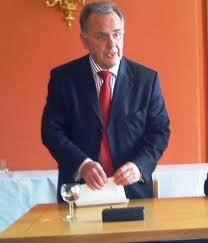In what amounts to one of the most detailed declarations of intent from any incoming city council administration, Labour is promising to create thousands of jobs and tackle ingrained unemployment and poverty on a journey to make Birmingham the enterprise capital of Britain.
City leader Sir Albert Bore used an 11-page policy statement to set out his vision, which he claimed would demonstrate the value of leadership “not just to Birmingham but to the country as a whole”.
He promised the 77-strong Labour group would take tough decisions and “put in the hard graft” necessary to ensure that the most vulnerable are protected.
Sir Albert unveiled a long list of pledges at the first full council meeting after the May elections, which saw Labour cruise to victory and oust the city’s Tory-Liberal Democrat coalition.
The main commitments are:
- Negotiate with the Government to drop plans for an HS2 high speed rail maintenance depot at Washwood Heath, enabling the land to be marketed immediately creating 6,000 jobs.
- Introduce a ‘Buy Birmingham First’ policy, giving priority to local companies to bid for council work.
- Improve Birmingham’s skills base to meet the city’s future economic needs.
- No increase in council tax, at least for this year.
- Introduce a business charter for social responsibility, inviting companies working with the council to pay a Living Wage, take on more apprentices and improve training.
- Bring forward plans for a major expansion of Birmingham Science Park Aston.
Sir Albert said his priority for the next two years would be jobs and enterprise, helping to get 52,000 unemployed Brummies into work.
New economic growth zones, which are likely to benefit from tax incremental funding schemes, include:
- An advanced manufacturing hub at the 20-acre Aston Regional Investment Site.
- A zone for environmental enterprise in Tyseley.
- The Heartlands Park business hub in Washwood Heath.
- A medical technology/life sciences campus in Edgbaston and Selly Oak.
- A hub park for digital firms at Longbridge.
- A food hub, bringing together a cluster of food businesses with the provision of shared facilities.
He promised to press ahead with an ambitious devolution programme, rolling out the provision of a wide range of local services to constituency committees. A new strategy for neighbourhoods would see Birmingham working with other cities including Manchester, Durham, Berlin and Rotterdam to “create the most ambitious programme for social cohesion and regeneration in Europe”.
His speech contained cautionary warnings about the difficult financial position the council finds itself in, and the pressure to deliver more than £300 million in Government spending cuts. The council’s ability to respond to the challenges Birmingham faces would be “severely constrained”, Sir Albert admitted.
The detail of Labour’s proposals was not lost on opposition councillors. Liberal Democrat leader Paul Tilsley said Sir Albert’s pledges would provide a useful benchmark against which his administration would be judged, in a clear hint that he did not consider the entire package to be achievable.
Sir Albert said he could not accept the argument that Birmingham’s ambitions should be more modest, given the difficult economic climate. He added: “Our vision for Birmingham is simple. We will work for fairness, prosperity and accountability. We want to see an inclusive city in which many more people can play their part.
“Many have shared this vision. But change is frustratingly slow. The gap between the better off and the less well off is wider than ever. The areas of the city with the greatest deprivation are the same as they were a decade ago. This cannot go on.”
The meeting offered early insight into the tactics likely to be deployed by opposition Conservative and Liberal Democrat councillors. An extended 90-minute question time prompted attacks on those perceived to be the weakest links in Sir Albert’s cabinet line-up.
Tahir Ali, the cabinet member for Development, Jobs and Skills, generally avoided answering questions put to him, often deferring regeneration issues to Sir Albert.
James McKay, the cabinet member for a green, safe and smart city, parried questions of a technical nature, pointing out that he had only been in the job for a couple of weeks.
Most attention was, however, focussed on Brigid Jones, the cabinet member for children and family services, who steadfastly refused to give academy schools her blessing other than to say, somewhat lamely, that Labour was committed to building a relationship with schools that had made the switch to academy status.



RT @paulmdale: Labour’s vision for Birmingham, as told by Sir Albert Bore. Read my take @ChamberlainFile
RT @paulmdale: Labour’s vision for Birmingham, as told by Sir Albert Bore. Read my take @ChamberlainFile
Labour’s vision for Birmingham, as told by Sir Albert Bore. Read my take @ChamberlainFile